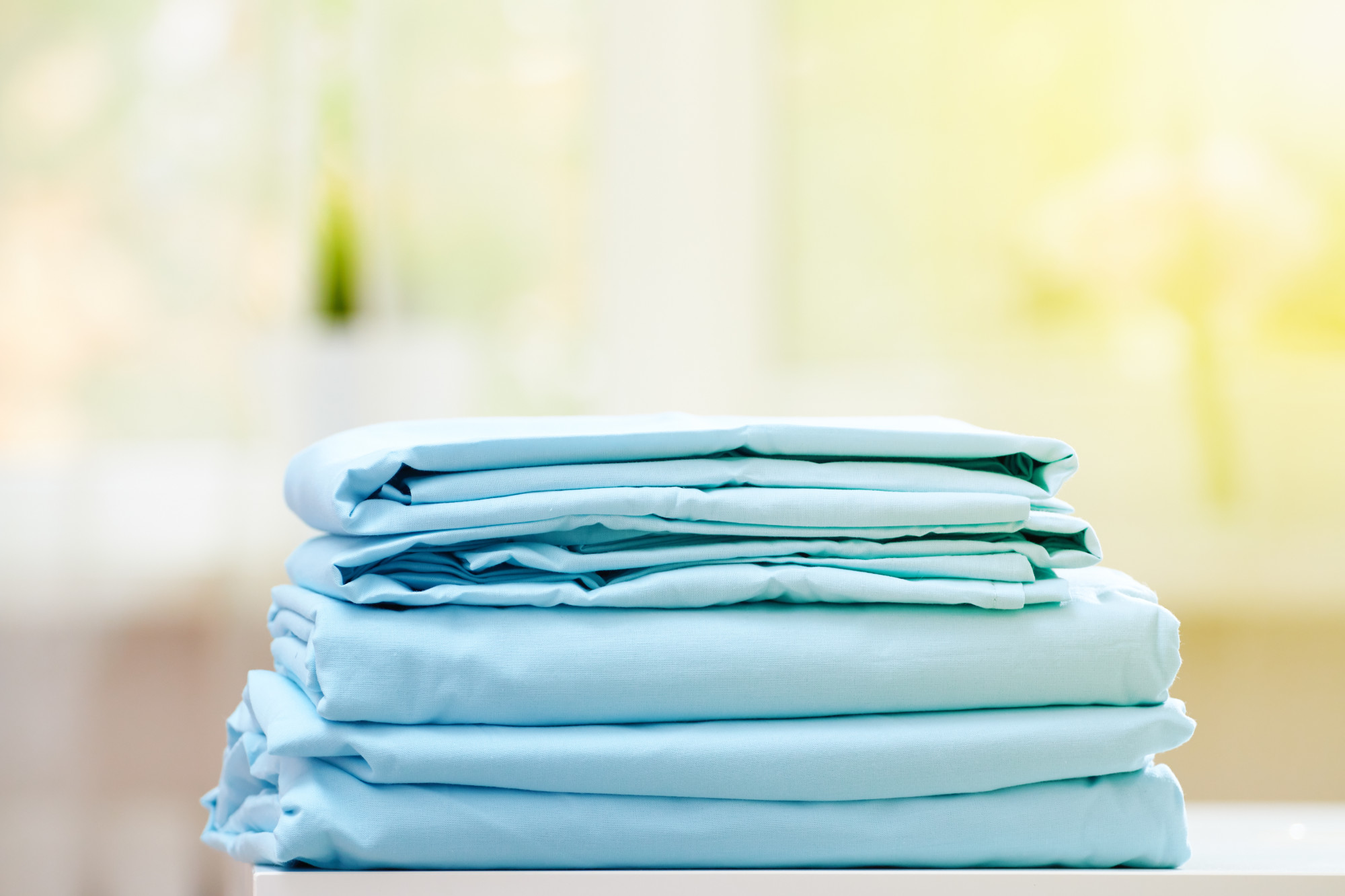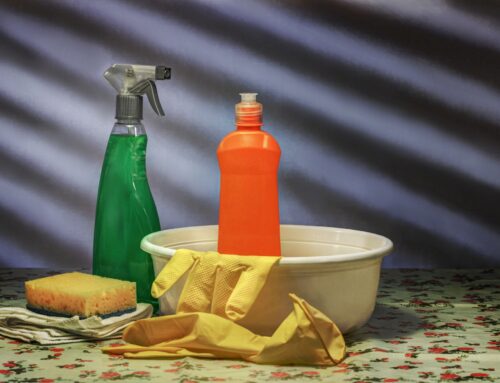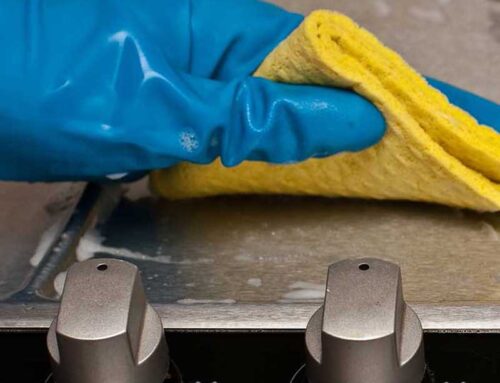Could you imagine wearing the same outfit every day for eight hours? How often would you wash that outfit? The same principle applies to bedsheets.
Humans spend nearly 6-8 hours of every day sleeping in our beds. As you sleep, your body sheds dead skin and oils that can quickly accumulate in your sheets. Yuck.
How often should you wash your sheets to keep mites and bacteria at bay? And what can happen if you skip washing for a few weeks?
Read on to learn more about when and how to clean bedding!
How Often Should You Wash Your Sheets?
The average person should wash or change their sheets at least once per week. If you have pets in the bed, washing every 3-4 days is even better.
What happens when you don’t wash your sheets? Several nasty things can build up, including dead skin cells, oils, dirt and dust, pet dander, dust mites, and even fecal matter. Not only can this cause your bed to smell over time, but it can also lead to skin problems, allergies, asthma, and more.
Some other factors can affect how often you should wash your sheets and bedding. You may be able to wait longer if these terms apply to you:
- You don’t sleep in the bed every night
- You wear pajamas to bed
- You shower and wash your face before bed
- You don’t sleep with pets
- You don’t toss and turn much in your sleep
- You don’t drool
- You don’t have any known skin conditions
All of these factors reduce the amount of skin, hair, and bacteria that you may shed during the night. If you have a skin condition like eczema or acne, you may need to wash your sheets more often to prevent flairs.
How Often Should You Wash Bedding?
You should wash or change your sheets every 1-2 weeks, but what about other bedding? Depending on your sleeping habits, pets, and more, here’s how often you should be cleaning your pillows and blankets.
Pillows and Pillowcases
Change your pillowcases as often as you change your sheets, about once per week. You may need to change more often if you wear lotions and products or you don’t wash your face before bed. If you experience problems with acne, you may want to change your pillow case every 2-3 days.
You should clean your pillows themselves too, but not as often. Every 4-6 months, wash your machine-washable pillows and give the others a spot cleaning and thorough vacuuming to remove gunk and dust. Always check the pillow manufacturer’s washing instructions and dry thoroughly before returning the pillow to your bed.
Comforters, Quilts, and Duvet Covers
In general, aim to wash your comforters and quilts every 2-3 months. Of course, washing more often won’t hurt, but this is a minimum goal to keep your bed clean.
If you use a duvet cover, washing at home may be a little easier. Duvet covers are smaller and easier on your washing and drying machine than big, bulky comforters. You should wash your duvet cover about every 2-4 weeks.
If you don’t use a top sheet, you may need to clean your comforters and quilts more often. A top sheet shields your blankets from picking up skin cells and oils, and washes with the rest of your sheets. Sleeping with pets may also increase the need to wash your bedding more often.
Even if you have a washing machine at home, you may want to bring your large comforters and quilts to a laundromat. Industrial-sized washing machines can give your blankets a better clean, and you can avoid damaging your own washer.
Throw Blankets
Throw blankets are relatively easy to wash at home or at your local laundromat. Depending on how often you use a particular blanket, aim to wash your throw blanket every 1-3 months. If you have pets that like to cuddle up in your bedroom, wash throw blankets more often.
Your Mattress
Yes, you should be cleaning your mattress too! Mattresses act like sponges for dirt, skin, and dust mites. Spot cleaning and vacuuming your mattress every six months can help to extend the life of your mattress, improve your sleep quality, and protect your health.
How to Clean Sheets
You don’t need to take your sheets to a special cleaner every week. You can usually wash your sheets at home if you have a washing machine. A clothes dryer can make washing easier, but it’s also possible to hang dry your sheets outdoors.
If you don’t have a washing machine at home, take your sheets to a nearby laundromat. You can wash them at the same time as the rest of your clothes. Consider investing in a few sets of sheets, so you can simply change them out weekly and wash them later.
1. Wash in the Washing Machine
Start by stripping the top sheet, fitted sheet, and pillowcases from your bed; You can wash all of these items together. Before washing your sheets, check the washing instructions on the manufacturer’s tag. Following the instructions will help your sheets last longer.
Load the sheets and pillowcases into your washing machine, spacing them out as evenly as possible. Pour a modest amount of laundry detergent into the dryer. Laundry detergent is highly concentrated, so you only need about a tablespoon of liquid or two tablespoons of powdered detergent per load.
Select the hottest water temperature possible, according to the manufacturer’s tag. Light-colored cotton sheets can usually tolerate higher heat than dark-colored or synthetic sheets. Wash your sheets on a bulky item cycle if available.
2. Machine Dry or Line Dry
When your sheets have finished washing, you can load them into the dryer or hang them outside to line dry. Cotton sheets can usually tolerate high dryer temperatures better than synthetics like satin or polyester. Dry your sheets according to the manufacturer’s instructions to avoid damage to your sheets or your dryer.
Most sheets only need about an hour to dry in a drying machine, or 1-2 hours outdoors, depending on the weather.
3. Use or Fold and Store
Once your sheets are completely dry, they’re ready to go back onto your bed or be folded and stored for later. Before storing your sheets, it’s important to fold them correctly. Wadding up your sheets and stuffing them into a drawer can create wrinkles and make them hard to find later.
Fitted sheets can be one of the trickiest items to fold on laundry day. Here’s a simple technique for folding fitted sheets:
- Lay the sheet on a flat surface, elastic side up
- Grab two corners from a short edge and flip them inside-out over your hands
- Tuck the inside-out corners into the opposite corners
- Straighten up and fold each side in towards the middle, then in half like a book
- Fold the top and bottom edges toward the middle
- Fold in half so no elastic is showing
Stuffing your clean sheets into drawers can lead to mildew and sour smells later. It’s better to store sheets in a large closet or open shelf in the laundry room so they have plenty of ventilation.
Discover the Clean of Your Dreams
How often should you wash your sheets? Wash your sheets every 1-2 weeks, or as often as you can!
At Scrub N’ Bubbles Cleaning, we understand your life can get busy. We’ve proudly served the Treasure Valley and Boise area for over a decade. Protect your health and restore your sleep with a one-time or recurring house cleaning!
Let us show you the clean of your dreams; click here to request your estimate!





